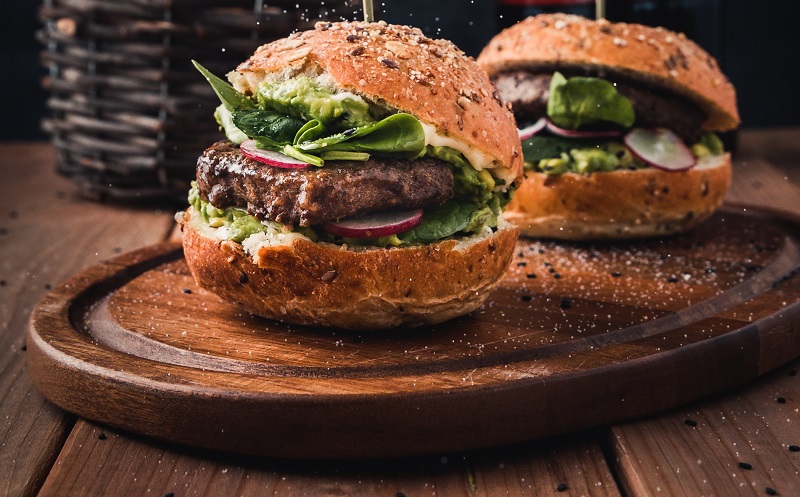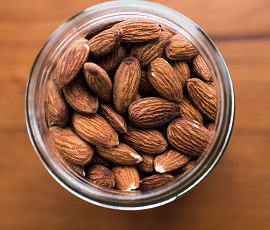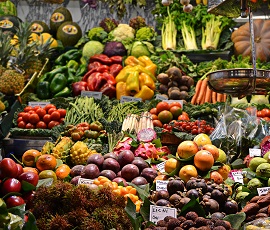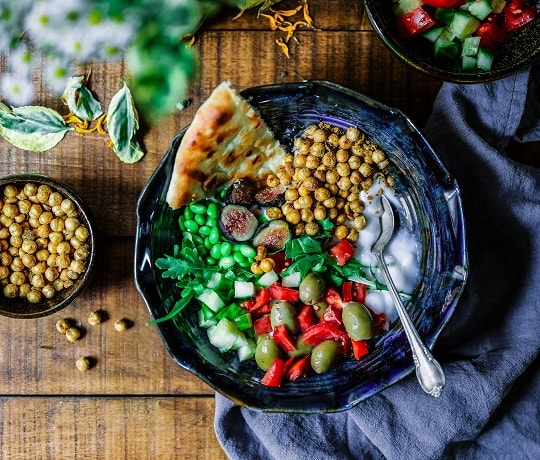Plant-Based Meat – Not all it's beefed up to be

You’ve probably heard the recent hype about the plant-based burgers that have taken the fast food and grocery worlds by storm. There’s the Hungry Jack’s plant-based burger (the Rebel Whopper), the Impossible Burger, the Incredible Burger, the Beyond Burger, the Soul Burger and so many more.
In this article, we investigate two of the best-selling plant-based burgers in the Australian market and compare them health-wise to our own plant-based patties. While we won’t name names, what we can say is that both of the commercial plant-based burgers are sold at popular fast-food outlets and have received plenty of media attention lately for their uncanny physical and taste-likeness to a regular meat patty. They are marketed as a healthier alternative to a meat burger, but are they?
Below you’ll find a side by side comparison of the ingredients and key nutritional data for these trendy burgers, so you can make your own judgement. We’ve also cleared up some of the common misconceptions around plant-based meat substitutes.
Bite down on this! Plant burger ingredients & nutrition comparison
Let’s see how the two commercial plant-based burgers measure up against our chef-made, wholefood vegetarian Vegetable + Lentil Burger.
We have underlined any suspect ingredients, either from the standpoint of being overly processed or an undesirable food additive (more on that later).
Which burger would you rather eat? We know which one we’d choose!
|
Plant-based burger 1 |
Plant-based burger 2 | Dietlicious Vegetable + Lentil Burger | |
| Ingredient list* | Water, Soy Protein, Vegetable Oil, Thickeners (461, 1442) Flavours (Including Glutamic Acid (620)), Dextrose, Caramel Colour (150c), Antioxidants (300, 307), Smoke Flavour |
Pea Protein Isolate (17-18%), Expeller-Pressed Canola oil, Refined Coconut Oil, Cellulose from Bamboo, Methylcellulose, Potato Starch, Natural Flavour, Maltodextrin, Yeast Extract, Sunflower Oil, Vegetable Glycerin, Dried Yeast, Gum Arabic, Citrus Extract (to protect quality), Ascorbic Acid (to maintain colour), Beet Juice Extract (for colour), Acetic Acid, Succinic Acid, Modified Food starch, Annato (for colour) |
Tomato, capsicum, pumpkin, sweet potato, zucchini, carrot, lentil, GF breadcrumbs, olive oil, onion, lemon juice, egg, parsley, garlic, spices, chili, salt, pepper. |
| Energy | 674 calories | 755 calories | 257 calories |
| Total Fat | 36.3g | 41.1g | 8g |
| Sugars | 2.9g per 100g incl added sugar (dextrose) | 2.9g per 100g incl added sugar (maltodextrin) | 3.6g per 100g (no added sugars) |
| Sodium | 395mg per 100g | 333mg per 100g | 196mg per 100g |
| Fibre | 2-3g** | 2-3g** | 10g |
|
*For plant-based burger 1 & 2, we’ve just included the ingredients of the patty as the full list of the bun and other fillings are too lengthy. Note that the nutritional information relates to the entire burger (including bun, salad and sauce fillings) which is served as a meal. |
|||
| **Estimated fibre content from researching other sources (fibre content not published on their website). | |||
Common misconceptions about plant-based meat
When we started researching this topic, it didn’t take us too long to work out that there were some widespread misunderstandings about these burgers. Whether from clever marketing or lack of consumer awareness, the main confusion around plant-based burgers lies in their implied or perceived health benefits, which may or may not be warranted. Allow us to explain.
A plant-based burger doesn’t necessarily mean that the burger is:
1. Vegetarian or vegan. “Plant-based” usually does infer that a product is suitable for vegans and/or vegetarians. However, if you’re buying your burger from a fast food outlet, be sure to ask whether it’s cooked on the same grill as the meat products. You’d be surprised to find out which ones are, rendering them unsuitable for anyone avoiding contact with or ingestion of animal products. If you’re vegan then you also need to watch for the ingredients such as mayonnaise or cheese which can contain animal products like eggs or dairy.
2. Natural. Please take a look at the ingredients, like we did, to ascertain if you’re comfortable putting that stuff into your body. We should all be eating more plants, for sure, but when the ingredient has been subject to high levels of processing and barely resembles the original plant it was made from, is it still a plant? We would certainly question its authenticity and wholesomeness. There’s a rule that many nutritionists and dietitians live by when it comes to food (in fact there’s two, and we’ve combined them here) – “if you haven’t heard of the ingredient (or if Granny didn’t cook with it), then don’t eat it”. Oh, and would you like some additives, preservatives and E numbers with that? Great, cause that’s what you’ll be getting with many of the commercial plant-based burgers. Lots of lovely artificial stuff and some hidden MSG going by other names.
3. Low in calories or fat. That’s right; the two plant-based burgers we investigated (with buns, mayo, sauce and salad) pack a whopping 36g and 41g of fat respectively and contain 674kj and 755kj. This equates to around one third of your daily energy intake, or more if you’re female and not active. Also worth noting is that you’ll find vegetable or canola oil appearing near the top of the ingredient list in these burgers. If you want to learn more about these harmful industrial seed oils, we can direct you to this article from the Weston A. Price Foundation.
4. Salt or sugar friendly. Like many commercial meat burgers, the plant-based ones we looked at are high in sodium content. As for sweetness, it’s not the quantity that’s the problem but the hidden added sugars that are. Check out renowned nutritionist, Catherine Saxelby’s article here on different names for sugar and you’ll find some matches against the ingredients in these burgers.
In summary, is your health at steak?
When you combine all the information we’ve provided in points 1 to 4 above, you can clearly see that these commercial plant-based burgers are not a healthy choice.
The most alarming factor to us regarding these fast food burgers is that so many of the ingredients are coming from the plant via a laboratory to your plate. How does the body assimilate highly processed ingredients and are they contributing any nutritional value? Unfortunately scientists don’t fully know! Suffice to say that real food is the key to good health and processed food is not.
So what’s our conclusion? If you’re looking for a healthy option, you’re not going to find it at your local burger joint, plant-based or not. Certainly though, having a healthy relationship with food is all about moderation. Everyone should enjoy treat foods from time to time and if you like these burgers, then take pleasure in eating them very occasionally, not as everyday foods.
The Dietlicious Vegetable + Lentil Burger on the other hand can be enjoyed guilt-free any and every-day. It contains only wholefood ingredients, nothing artificial and no preservatives or additives. It’s also light on the hips yet packed with gut-healthy fibre and other nutrients. Or try our Risotto Cakes with Pumpkin + Pesto for another wholesome vege burger replacement.
If you’re looking for more vegetarian ready-meals and vegan fast food options, then consult our menu for healthy wholefood alternatives that you can serve up from freezer to table in a matter of minutes.
Let’s meet the plant-based meats you might find at the supermarket:
Hungry Jack’s plant based burger, impossible burger, beyond burger, alternative meat company, rebel whopper, soul burger, veef, nextgen2, chick’n, impossible foods, v2, vegan burger, unreal co, incredible vegan burger, naturli, textured vegetable protein, meatless, meat-free, beef-free, chicken-free, quorn, sunfed, vegie delights, frys, gardein, plantforce, minced, funky fields, tofurky, heck, just veggies, qwrkee, linda mccartney, suzy spoons, sayur, lamyong, cheatin’, viana, loma linda, sophie’s kitchen, suma, vegiredi, Grill’d, Lord of the Fries, Hungry Jack’s, Mad Mex, Domino’s, Ribs & Burgers, Burger King, CSIRO











